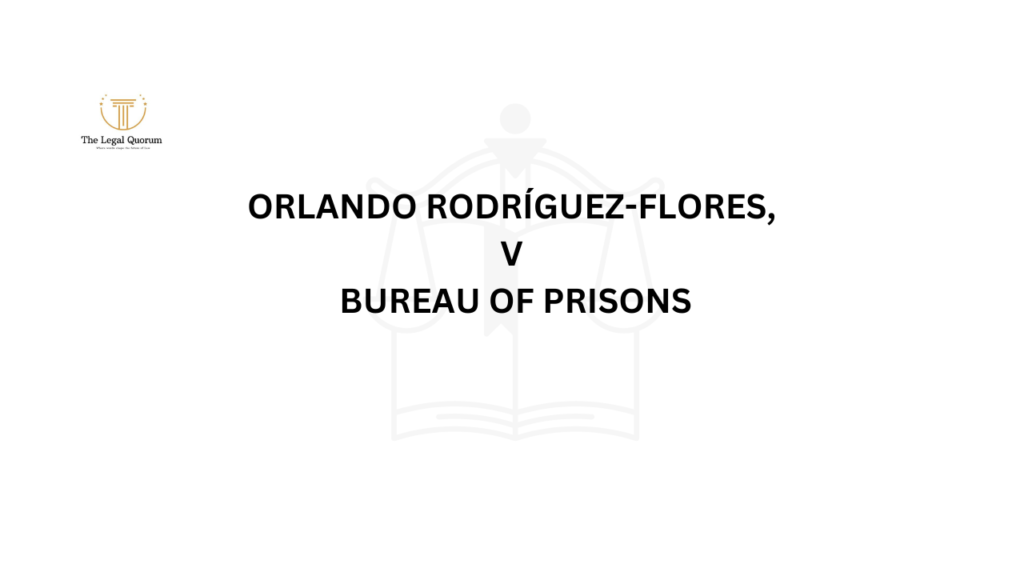Published on 27th June 2025
Authored By: Upanshi Upadhyay
Guru Govind Singh Indraprastha University
Citation: (2014) 2 SCC 1
Date of Judgment: November 12, 2013
Bench: Chief Justice P. Sathasivam, Justices B.S. Chauhan, Ranjana Prakash Desai, Ranjan Gogoi, and S.A. Bobde
Petitioner: Lalita Kumari
Respondents: Government of Uttar Pradesh & Others
Introduction
The Supreme Court decision in the case of Lalita Kumari on the government shows the moment of Indian criminal and procedural law. This judgment, provided by the Constitutional Bench, has broad consequences for the interpretation and application of Section 154 of the Criminal Procedure Code (CrPC) of 1973 (CrPC), which governs the procedure for registering a First Information Report (FIR) in the event of a cognizable offence.
Before this ruling, police in various states had considerable ambiguity and contradictory consequential practices when it came to registering FIRs. Victims of crimes were often exposed to police discretion and faced due to arbitrary voluntary rejection or unnecessary delays in accommodation. Law enforcement often cites the lack of clear evidence or the need for review as reasons to delay or avoid FIR, particularly when strong people, influential parties, or politically sensitive issues are involved. Such practices not only overturned the introduction of criminal investigations, they also erode public trust in the criminal justice system.
The case of Lalita Kumari was created from the deeply personal and stressful fact that Petitioner’s lured and claimed her minor prey and was unusually hit by local police authorities. The police’s refusal or resistance to registering the FIR urged them to contact the Supreme Court of India in accordance with Article 32 of the Constitution. What began in one case as a petition of justice turned into a decisive legal decision regarding the petitioner’s rights and police duties.
In its decision, the Supreme Court dealt with an important question as to whether the FIR registration if information on the release of a cognisable crime is available. The court also sought to clarify the outlines of police authorities, the obligations of state machinery, the obligation to comply with complaints, and the safeguards necessary to prevent abuse of FIR procedures.
The court has undoubtedly stated that FIR registrations are explicitly mandated when information clearly obtained to commission a cognisable crime is clearly required. The verdict also saw that failing to do this not only violates the legal obligations filed pursuant to Section 154CRPC, but also rejects the judiciary. However, the court also recognized the need for limited and closely coordinated interim examinations in exceptional cases, such as marriage disputes, commercial transactions, medical negligence and corruption cases. It was emphasized that criminal processes should not be suppressed by thresholds, and that timely registration of FIRs forms the basis for fair and efficient testing. Since then, the Supreme Court decision has held binding precedents for all police authorities and pre-court courts, strengthening the legal status and fundamental principles of the judiciary. It is by acknowledging normal citizens, especially vulnerable and marginalized citizens, and verifying their right to listen and list their complaints without fear or delay.
Factual Background
The origins of the Lalita Kumari incident against the Uttar Pradesh government are in a deeply disturbing and stressful case of suspected allegedly being invited by a minor girl called Lalita Kumari Whose father, Kushwaha, a resident of Gorakhpur district in Uttar Pradesh, turned to the police in hopes that prompt measures will be taken to find and retrieve the daughter. On the day of the incident, he received a written complaint to the responsible officer of the local police station, reported the invitation of his minor daughter and provided enough information to take legal action. The complaint was clearly contained cognizable Crimes, which was permitted by police to register the FIR in accordance with the law and to determine without prior approval by the judge.
As expected, instead of responding urgently, police appeared indifferent and lethargic when the potential threat included living threats and minor freedoms. A day without formal action or progress in the incident. Left with no alternative and growing increasingly desperate to secure the safety of his daughter, the father moved the Supreme Court of India under Article 32 of the Constitution. Article 32 guarantees the right to constitutional remedies for the enforcement of fundamental rights, and has been described by Dr. B.R. Ambedkar as the “heart and soul” of the Constitution. The petitioner sought a writ of mandamus directing the police to register an FIR and commence a prompt investigation into the kidnapping.
The facts of this case led to an investigation into the widespread, often arbitrary, pseudo-master practices of police officers who refused to register for the FIR, even if the cognizable crime allegations were made explicitly. The problem wasn’t just a procedure – it was at the heart of India’s criminal justice administration. The real question before the Supreme Court now extended far beyond the facts of Lalita Kumari’s disappearance. It invited the Court to consider the following fundamental issue:
Does the police have discretion to conduct a preliminary inquiry before registering a First Information Report upon receiving information of a cognizable offence, or is the registration of the FIR mandatory under Section 154(1) of the CrPC as soon as such information is received?
This question had created a jurisprudential divide across various High Courts and benches of the Supreme Court in the years leading up to this case. In some rulings, courts had held that the police must register an FIR immediately upon receiving credible information about a cognizable offence. In others, courts permitted a preliminary verification or inquiry before registration, especially in cases that could potentially involve false allegations, commercial disputes, or matrimonial discord.
Given the far-reaching implications of this issue on law enforcement, access to justice, and fundamental rights under Articles 14, 19, and 21 of the Constitution, the Supreme Court, in its wisdom, referred the matter to a larger Constitution Bench comprising five judges. This decision highlighted the gravity and national importance of the issue.
During the hearings, the bench examined not just the narrow factual matrix of the Lalita Kumari case, but the broader systemic failure that many complainants across the country faced when attempting to lodge FIRs. The bench also considered submissions from various states, the Union of India, and legal luminaries who were invited to assist the Court as amicus curiae. It was evident that the case had outgrown its factual origin and was now about shaping a uniform and binding doctrine to govern the practice of FIR registration across India.
In summary, the factual trigger—a father’s complaint about the abduction of his child and the police’s refusal to register an FIR—was emblematic of a much larger and persistent problem: the tendency of police officers to exercise discretion arbitrarily when dealing with cognizable offences. This raised crucial constitutional questions about the balance between executive discretion and statutory duty, the rights of victims, and the obligations of law enforcement officers in a democratic society governed by the rule of law.
Legal Issues
The incident asked the following central questions:
- If the information reveals a cognizable crime, is it registered according to Section 154 CrPC?
- Can police conduct a preliminary examination before registering an FIR?
- What guidelines should be followed in situations where a preliminary investigation is required?
- What is the result of non-registration of FIR?
Arguments Presented
Petitioner’s Arguments
The petitioner Shri K.K., father of Little Lalita Kumari, presented a strong and constitutionally established argument by his legal counsel. His submissions not only touched on the specific injustice he took, but also revealed a wider systemic obstacle inherent in police practices with regard to FIR registration.
Provided that registration of the first information report is mandatory if a police officer is tested for a cognizable crime. This argument was based on a literal interpretation of Section 154(1) of the 1973 criminal case. That is,
All information regarding the inspection of violations of knowledge will be written The authorities are obligated to register an FIR as soon as information discloses a cognizable crime is received.
- Scope for Abuse and Delays in Justice:
The petitioner’s side highlighted that permitting the police to conduct a preliminary inquiry before registering an FIR opens the door to arbitrariness and corruption. It was argued that in practice, this discretion often leads to:
- Delays in investigation, allowing valuable evidence to be lost;
- Harassment of complainants, particularly the poor or socially marginalized;
- Manipulation of complaints by powerful accused persons;
- A general erosion of public confidence in law enforcement agencies.
By refusing to register FIRs or deliberately delaying them, the police effectively deny access to justice, thereby compromising the very objectives of criminal law.
- Violation of Fundamental Rights:
At the heart of petitioner’s case is the fundamental rights guaranteed after the Constitution, particularly the claims that it violates the fundamental rights guaranteed after the Constitution:
- His personal freedoms of life and individuals, including access to the punitive judicial system. discrimination.
- Article 19(1)(a): The right to freedom of expression, including the right to report and be heard of a crime.
- Precedents Supporting Mandatory FIRs:
The petitioner relied on several prior decisions of the Supreme Court and High Courts that recognized the compulsory nature of FIR registration. In particular, cases such as:
- State of Haryana v. Bhajan Lal [(1992) Supp (1) SCC 335], [1]which discussed abuse of power by police and laid down guidelines for FIR registration and investigation;
- Ramesh Kumari v. State (NCT of Delhi) [(2006[2]) ,where the Court held that non-registration of FIR amounts to dereliction of duty by the police.
These precedents, according to the petitioner, unequivocally supported the idea that registration precedes inquiry, and not the other way around.
Respondents’ Arguments
Respondents, including Uttar Pradesh and the Union of India (represented by various state police authorities), rebutted Petitioner’s request by defending existing practices of preliminary investigations in selected cases. They discussed more about differentiated and flexible approaches than strict rules.
- Necessity of Preliminary Inquiry:
Respondents stated that not all information is entitled to cognizable crimes. The facts allegedly filed can be ambiguous, incomplete, or even malignant. In these circumstances, a brief review or exam is required below.
- Avoid overburdening the criminal justice system;
- Prevent false and frivolous complaints from being registered;
- Protect innocent individuals from unnecessary harassment and stigma;
- Allow police to exercise their professional judgment and maintain operational efficiency.
Parties often file criminal charges to obtain leverage of civil matters, especially when marriage disputes, trade transactions, medical negligence or rural disputes are involved. Therefore, the threshold requires a specific filter mechanism.
- Prevention of Abuse and Misuse of Legal Process:
The respondents also argued that mandatory FIR registration in all circumstances could lead to rampant misuse of the law. Since FIRs are serious legal documents with far-reaching consequences, their indiscriminate registration could:
- Damage reputations irreparably;
- Lead to false arrests or coercion;
- Result in wastage of public resources on baseless investigations;
- Increase the burden on already overstretched police forces and judicial institutions.
They contended that a preliminary inquiry, in such cases, serves as a safeguard to balance the interests of justice and fair process.
- Discretion as an Integral Part of Policing:
The respondents argued that discretion is a necessary part of the police work and that the law must allow police officers to treat symptoms with some degree of judgement. As police officers argue, they are trained experts who must be trusted to assess the basic background of the information they obtain. According to Section 157 of the CRPC, police can begin exams under certain circumstances without a formal FIR.
The Broader Legal and Policy Debate
In this case, the argument was not limited to interpretation of legal provisions. Instead, they asked basic questions about the structure and function of the Indian criminal justice system. At its core, the argument was a tug of war between individual rights and institutional efficiency. On the other hand, the petitioner’s right to access justice was the duty of the state to maintain order and ensure procedural integrity.
Petitioner’s viewed preliminary exams as a means of harassment and delay, which was often influenced by foreign considerations. However, respondents viewed them as an important mechanism for preventing legal abuse and protecting innocent people.
Conclusion
Lalita Kumari’s judgment is a turning point in India’s criminal justice system. This is a critical change to ensure fairness, transparency and responsiveness in the police process. Naturally, by violating the registration of the FIR, the Supreme Court confirmed the constitutional promise of protection of the same law and proper proceedings. Overall, this decision allows citizens, especially those at risk, to look for justice without fear of being ignored or rejected by the police.
References
[1] State of Haryana v Bhajan Lal [1992] Supp (1) SCC 335 (SC)
[2] Ramesh Kumari v State (NCT of Delhi) (2006) 2 SCC 677 (SC)



